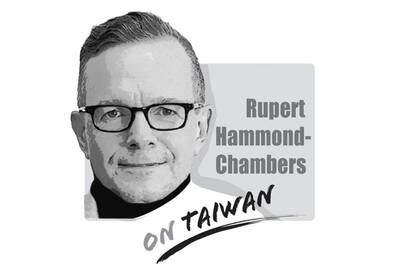I would like to add one important point to Ken S. Huang's very interesting letter about English instructors (Letters, Nov. 15, page 8). Being a foreigner (but not a native English speaker) who spent one year in Taiwan and fell in love with the island, I could not help but notice that often, too often, Taiwanese children are taught English by foreign teachers who have no qualification other than speaking English as their mother tongue.
I have met people whom I would never, ever allow to teach my own kids, people (especially young men) who spent all the money they made (and yes, it is a lot) in bars, seducing girls, getting drunk and speaking of Taiwan and the Taiwanese in a most obnoxious way. They had little or no motivation to be good teachers or even role models; they came for the money and never even thought about integrating or learning a single word of Chinese.
And what's even worse, I have met people who did not speak English very well but who were employed (especially by private cram schools) because they had a white face. They were told to tell parents that they were American or Canadian (when their accent was obviously not American), while their English was barely good enough to manage their daily life in Taiwan. In job advertisements it is of course always noted that schools are looking for native speakers with teaching degrees or experience, but reality is often quite different.
I certainly do not want to offend anybody. There are people who are devoted to teaching and who come to Taiwan to make a difference and to get to know the country and its people. But unfortunately, there are way too many "black sheep" who take advantage of Taiwan's fascination with (white) foreigners and who live an easy life, going to class with no qualifications and only money and pleasure on their minds. Seeing this has often made me feel bad; it still does when I think of it.
I truly hope that people will come to their senses soon and check out their potential teachers' abilities, not only in terms of speaking English, but also teaching it by means of didactical methods. Who knows, maybe some day Taiwan will even be able to turn down all those who take advantage of it in this shameful manner.
Juliane Hagen
Germany
Having lived through former British prime minister Boris Johnson’s tumultuous and scandal-ridden administration, the last place I had expected to come face-to-face with “Mr Brexit” was in a hotel ballroom in Taipei. Should I have been so surprised? Over the past few years, Taiwan has unfortunately become the destination of choice for washed-up Western politicians to turn up long after their political careers have ended, making grandiose speeches in exchange for extraordinarily large paychecks far exceeding the annual salary of all but the wealthiest of Taiwan’s business tycoons. Taiwan’s pursuit of bygone politicians with little to no influence in their home

In 2025, it is easy to believe that Taiwan has always played a central role in various assessments of global national interests. But that is a mistaken belief. Taiwan’s position in the world and the international support it presently enjoys are relatively new and remain highly vulnerable to challenges from China. In the early 2000s, the George W. Bush Administration had plans to elevate bilateral relations and to boost Taiwan’s defense. It designated Taiwan as a non-NATO ally, and in 2001 made available to Taiwan a significant package of arms to enhance the island’s defenses including the submarines it long sought.
US lobbyist Christian Whiton has published an update to his article, “How Taiwan Lost Trump,” discussed on the editorial page on Sunday. His new article, titled “What Taiwan Should Do” refers to the three articles published in the Taipei Times, saying that none had offered a solution to the problems he identified. That is fair. The articles pushed back on points Whiton made that were felt partisan, misdirected or uninformed; in this response, he offers solutions of his own. While many are on point and he would find no disagreement here, the nuances of the political and historical complexities in
Taiwan faces an image challenge even among its allies, as it must constantly counter falsehoods and misrepresentations spread by its more powerful neighbor, the People’s Republic of China (PRC). While Taiwan refrains from disparaging its troublesome neighbor to other countries, the PRC is working not only to forge a narrative about itself, its intentions and value to the international community, but is also spreading lies about Taiwan. Governments, parliamentary groups and civil societies worldwide are caught in this narrative tug-of-war, each responding in their own way. National governments have the power to push back against what they know to be